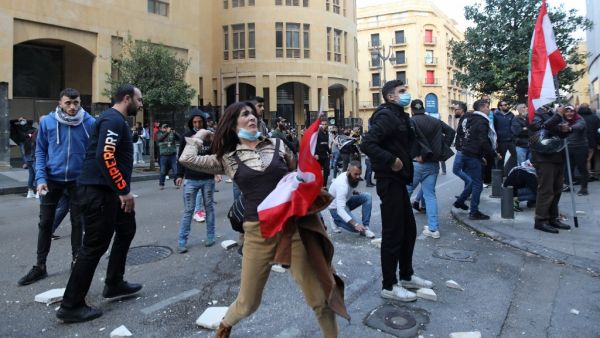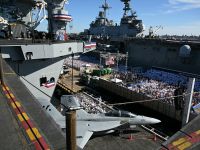Protesters took to the streets Saturday as the Lebanese pound reached unprecedented lows and the country's catastrophic situation deteriorated further.
Hundreds of protesters gathered in Martyrs' Square in Downtown Beirut, primarily called by retired servicemen. They later marched toward the Beirut Port. Protesters demanded a transitional government, a forensic audit of the Central Bank and public sector and a transparent investigation into August's Beirut Port blast.
Then in January, cash-strapped Lebanon - which hasn’t had a fully functioning government for seven months - was plunged deeper into economic misery by new Covid-19 lockdown measureshttps://t.co/v4J9VX76M9
— Middle East Eye (@MiddleEastEye) March 13, 2021
Meanwhile, dozens of protesters clashed with security forces near Parliament as some people hurled rocks toward the barrier that blocks the road leading to Parliament, and were met by tear gas shot by the riot police.
A few dozen people also protested in front of the Central Bank in Hamra. Hundreds of people also marched in the southern city of Tyre protesting the dire living situation.
Road blocks re-appeared across the country, as a highway leading to Sidon in the south was blocked, in addition to the highway connecting Jiyyeh to the capital and roads in Tripoli and all roads leading to Martyrs' Square in Beirut.
Lebanese demonstrators say supporters of Hezbollah and others undermined protests by taking part in them https://t.co/AeiheCDr6t
— The National (@TheNationalNews) March 11, 2021
The Lebanese pound earlier on Saturday sharply declined against the US dollar, trading for as high as LL12,400, further decreasing the purchasing power of people and causing prices to skyrocket even more.
Hundreds of people also took to the streets Friday calling for a transitional government to set Lebanon on a path to rescue.
This article has been adapted from its original source.








